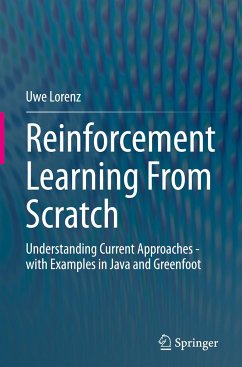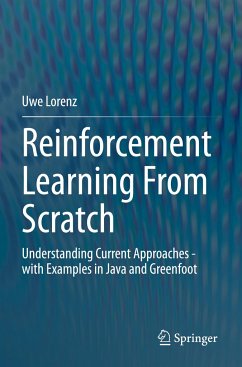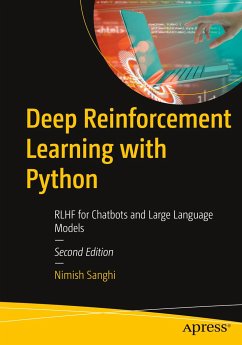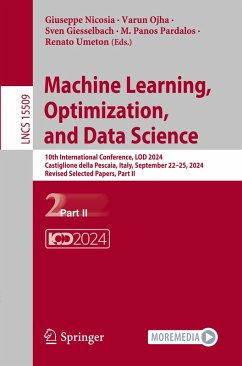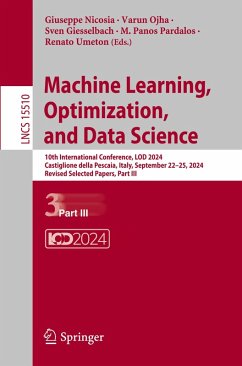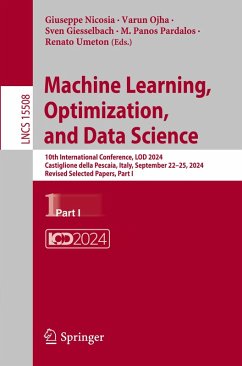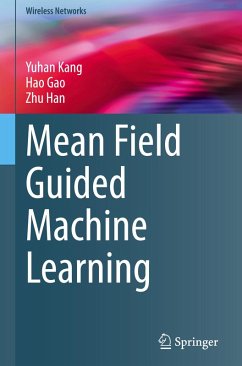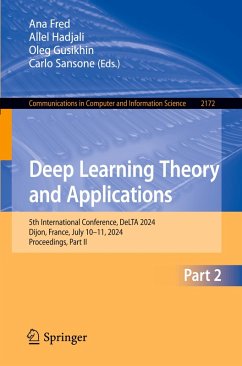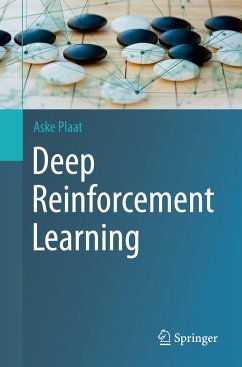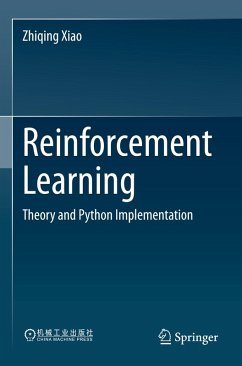
Reinforcement Learning
Theory and Python Implementation
Versandkostenfrei!
Versandfertig in 6-10 Tagen
42,99 €
inkl. MwSt.
Weitere Ausgaben:

PAYBACK Punkte
21 °P sammeln!
Reinforcement Learning: Theory and Python Implementation is a tutorial book on reinforcement learning, with explanations of both theory and applications. Starting from a uniform mathematical framework, this book derives the theory of modern reinforcement learning systematically and introduces all mainstream reinforcement learning algorithms such as PPO, SAC, and MuZero. It also covers key technologies of GPT training such as RLHF, IRL, and PbRL. Every chapter is accompanied by high-quality implementations, and all implementations of deep reinforcement learning algorithms are with both TensorFl...
Reinforcement Learning: Theory and Python Implementation is a tutorial book on reinforcement learning, with explanations of both theory and applications. Starting from a uniform mathematical framework, this book derives the theory of modern reinforcement learning systematically and introduces all mainstream reinforcement learning algorithms such as PPO, SAC, and MuZero. It also covers key technologies of GPT training such as RLHF, IRL, and PbRL. Every chapter is accompanied by high-quality implementations, and all implementations of deep reinforcement learning algorithms are with both TensorFlow and PyTorch. Codes can be found on GitHub along with their results and are runnable on a conventional laptop with either Windows, macOS, or Linux.
This book is intended for readers who want to learn reinforcement learning systematically and apply reinforcement learning to practical applications. It is also ideal to academical researchers who seek theoretical foundation or algorithm enhancement in their cutting-edge AI research.
This book is intended for readers who want to learn reinforcement learning systematically and apply reinforcement learning to practical applications. It is also ideal to academical researchers who seek theoretical foundation or algorithm enhancement in their cutting-edge AI research.




